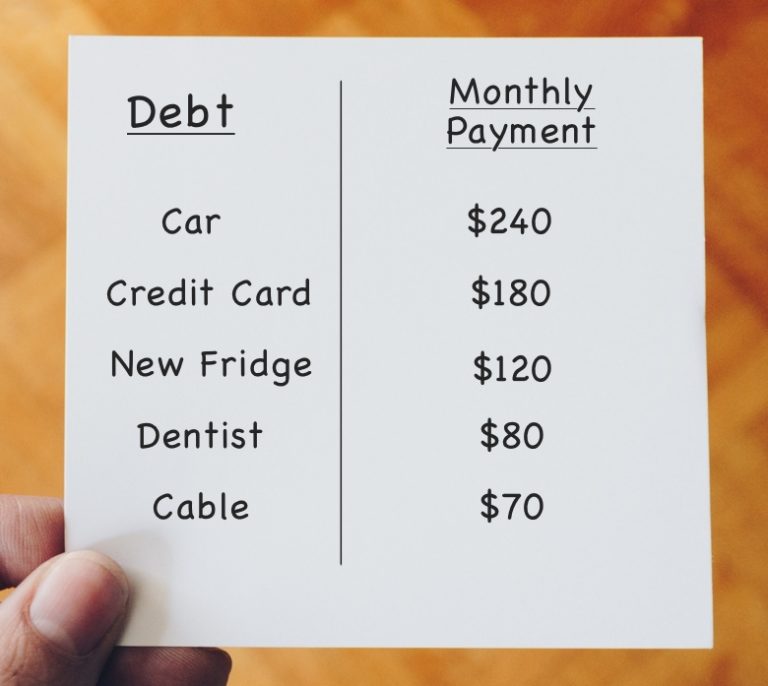The Facts About Declaring Bankruptcy And Your Immigration Status

In the majority of situations, filing for a chapter 7 or chapter 13 bankruptcy should not adversely affect your immigration status.
For starters, you don’t need to be a US citizen or even have a green card to file for bankruptcy protection.

Even better, your citizenship application, visa or green card applications should and will continue even if you do file for bankruptcy.
The United States Citizenship and Immigration Services (USCIS) can’t deny your application just because you filed for bankruptcy.
The Bankruptcy Code, Section 525 (a) is the law that prevents the federal government from discriminating against anyone who files for bankruptcy protection. The section provides:
“…A governmental unit may not deny, revoke, suspend, or refuse to renew a license, permit, charter, franchise, or other similar grant to, condition such a grant to, discriminate with respect to such a grant against, deny employment to, terminate the employment of, or discriminate with respect to employment against, a person that is or has been a debtor under this title or a bankrupt or a debtor under the Bankruptcy Act, or another person with whom such bankrupt or debtor has been associated, solely because such bankrupt or debtor is or has been a debtor under this title or a bankrupt or debtor under the Bankruptcy Act, has been insolvent before the commencement of the case under this title, or during the case but before the debtor is granted or denied a discharge, or has not paid a debt that is dischargeable in the case under this title or that was discharged under the Bankruptcy Act.”
How a Bankruptcy Petition Could Be Used by Immigration Authorities
Generally, anyone seeking admission to the United States through the immigration process must show they have good moral character.
If you’ve been convicted of a crime, if the immigration officials have reason to believe you lied on any forms, or if the officials believe that you lack morality; your immigration application may be denied.
USCIS also wants to make sure immigrants seeking admission into America don’t become a financial burden.
Mostly, they’re looking to see if you can, or are working.
The government doesn’t want to have to pay for welfare and other financial assistance.
The fact that you declared bankruptcy may actually help to show and prove that you are working to resolve your debt situation.
Situations Where Filing Bankruptcy Could Affect Your Immigration Status
While the act of filing for bankruptcy shouldn’t disqualify you for immigration, the items on the bankruptcy petition, and your conduct during the bankruptcy process could be used against you.
Here are a few ways the underlying facts behind the bankruptcy petition may hurt your chances for immigration approval:
- You ran up large debts to pay for items you clearly knew you could never afford.
- If it is clear from the creditor list and your income that you were never ever going to be able to pay for lavish expenses, that may be problematic.
- You may be asked about your taxes. Many people get behind on their tax obligations.
- If, however, you lied about your taxes to the IRS or any official for that matter, the lie could be used to deny your immigration applications.
Generally, immigrants are productive people who pay a lot of money into the government (through taxes and social security) even though they are not entitled to those benefits unless they become an American citizen.
Immigrants, like every existing citizen in America, can develop financial problems due to a bad marriage, medical difficulties, and credit card debts.
They may not be able to pay for a home or apartment.

For immigrants, like American citizens, a bankruptcy is nothing to be ashamed of or frightened of – it is your right.
Bankruptcy provides a legitimate second chance for many people each year including American citizens and immigrants alike.
Bankruptcy and Criminal Offenses
If the bankruptcy court believes you committed a crime, then that crime could be used against you.
Possible bankruptcy crimes include:
- Lying under other;
- Providing financial statements that you know to be false;
- Not providing information about income or debts that you were supposed to provide on your bankruptcy forms
Very few people are charged with bankruptcy crimes.
Many usually are just told to provide the accurate information within a specific time frame.
If you are charged with a bankruptcy crime, then your bankruptcy petition could be denied.
If USCIS learns of the bankruptcy crime after examining your bankruptcy records, then you could be deported if you are an immigrant.
You may even be barred from re-entering the United States, or be unable to re-enter for a specific number of years.
Experienced bankruptcy lawyers successfully work with immigrants.
We explain what you must list on your bankruptcy petition paperwork and the need for you to be honest in everything your report to the US Bankruptcy court.
We also explain that you must be truthful at the mandatory creditor’s meeting before the US Trustee in Bankruptcy.
Filing Bankruptcy After Sponsoring an Immigrant
If you are sponsoring an immigrant for a visa or for citizenship, generally, you can still sponsor that person even if you file for bankruptcy.
If you sponsor someone and they need to go on to public assistance, you may need to repay public assistance.
The Take Home
The bottom line is that if you’re an immigrant and seeking citizenship, even if you declare bankruptcy, you’ll still be able to become a citizen. All you need to do is make sure you’re honest about your financial situation, and that you remain crime free. If you’re considering bankruptcy, view our full list of bankruptcy services to see how we can help you rectify your financial situation and help get you out of debt.
For the best results, contact your local bankruptcy attorney and they’ll be able to guide you on the right track and ensure your case is heard and you’ll be properly represented.
Disclaimer. Please not that this article does not establish a lawyer/client relationship. Further, anyone with concerns about their immigration status should speak with an experienced immigration lawyer. The discussion in this article is to address the issue from just the bankruptcy side – and again bankruptcy clients should meet with an experienced bankruptcy lawyer.






